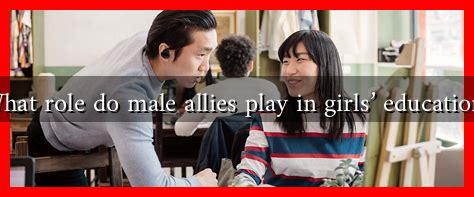-
Table of Contents
What Role Do Male Allies Play in Girls’ Education?
In the quest for gender equality, the role of male allies in promoting girls’ education has become increasingly significant. While the focus has often been on empowering girls and women, the involvement of men in this movement is crucial for creating a more equitable educational landscape. This article explores the multifaceted role of male allies in girls’ education, highlighting their impact, challenges, and the pathways to effective collaboration.
The Importance of Male Allies
Male allies can play a transformative role in advocating for girls’ education. Their involvement can help dismantle patriarchal norms and challenge gender stereotypes that often hinder girls’ access to education. Here are some key reasons why male allies are essential:
- Challenging Gender Norms: Male allies can use their privilege to challenge societal norms that perpetuate gender inequality. By advocating for girls’ education, they can help shift perceptions about the value of educating girls.
- Role Models: Men who actively support girls’ education serve as role models for other boys and men, demonstrating that gender equality benefits everyone.
- Creating Safe Spaces: Male allies can help create safe and inclusive environments in schools where girls feel empowered to learn and participate.
Case Studies of Successful Male Allyship
Several initiatives around the world have showcased the positive impact of male allies in promoting girls’ education. Here are a few notable examples:
- MenEngage Alliance: This global network of organizations works to engage men and boys in promoting gender equality. Through various programs, they have successfully increased awareness about the importance of girls’ education in communities worldwide.
- HeForShe Campaign: Launched by UN Women, this campaign encourages men to advocate for gender equality. Many male leaders have pledged their support for girls’ education, amplifying the message that education is a shared responsibility.
- Local Initiatives: In countries like Afghanistan, male teachers have taken a stand against child marriage and have actively promoted girls’ education, leading to increased enrollment rates in schools.
Statistics Highlighting the Need for Male Allies
The need for male allies in girls’ education is underscored by alarming statistics:
- According to UNESCO, 129 million girls worldwide are out of school, with barriers such as poverty, cultural norms, and violence contributing to this crisis.
- The Global Partnership for Education reports that girls are 2.5 times more likely to be out of school than boys in some regions, particularly in sub-Saharan Africa.
- Research shows that when men are involved in advocacy for girls’ education, communities are more likely to prioritize and invest in girls’ schooling.
Challenges Faced by Male Allies
While the role of male allies is vital, they also face challenges that can hinder their effectiveness:
- Resistance from Peers: Male allies may encounter pushback from other men who feel threatened by discussions of gender equality.
- Misunderstanding of Roles: Some men may struggle to understand how to be effective allies without overshadowing women’s voices in the conversation.
- Societal Expectations: Traditional gender roles can make it difficult for men to openly support girls’ education without facing stigma.
Pathways to Effective Male Allyship
To maximize their impact, male allies can adopt several strategies:
- Educate Themselves: Understanding the barriers girls face in education is crucial. Male allies should seek out resources and training on gender issues.
- Engage in Dialogue: Open conversations with women and girls about their experiences can help male allies understand their needs and perspectives.
- Advocate Publicly: Using their platforms to speak out about the importance of girls’ education can amplify the message and encourage others to join the cause.
Conclusion
Male allies play a critical role in advancing girls’ education by challenging societal norms, serving as role models, and creating safe spaces for learning. Their involvement is not just beneficial; it is essential for achieving gender equality in education. By understanding the challenges they face and adopting effective strategies, male allies can significantly contribute to a world where every girl has the opportunity to learn and thrive. As we continue to advocate for girls’ education, it is imperative to recognize and support the role of male allies in this vital movement.
For more information on how to get involved, visit UN Women’s HeForShe campaign.

